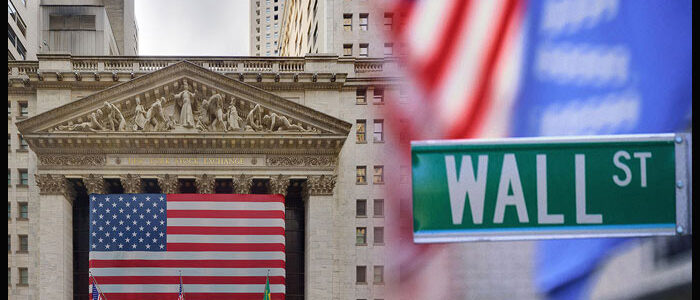
Worries About Interest Rates, Economy Lead To Sell-Off On Wall Street
Stocks moved sharply lower over the course of the trading day on Tuesday, more than offsetting the moderate rebound seen during Monday’s session. The major averages all showed significant moves to the downside, falling to their lowest closing levels in over three months.
The major averages climbed off their worst levels going into the close but still posted steep losses. The Dow slumped 388.00 points or 1.1 percent to 33,618.88, the Nasdaq plunged 207.71 points or 1.6 percent to 13,063.61 and the S&P 500 tumbled 63.91 points or 1.5 percent to 4,273.53.
The sell-off on Wall Street came amid ongoing concerns about the outlook for interest rates, with JPMorgan Chase (JPM) CEO Jamie Dimon warning in an interview with The Times of India that rates could go as high as 7 percent.
“I am not sure if the world is prepared for 7%,” Dimon said. “I ask people in business, ‘Are you prepared for something like 7%?’ The worst case is 7% with stagflation.”
“If they are going to have lower volumes and higher rates, there will be stress in the system,” he added. “We urge our clients to be prepared for that kind of stress.”
Minneapolis Federal Reserve President Neel Kashkari also wrote in an essay posted on Tuesday that there is a 40 percent chance the Federal Reserve will have to push rates “meaningfully higher” to combat stubborn services inflation.
Last week, the Fed left interest rates unchanged as widely expected but forecast another rate hike before the end of the year as well as keeping rates at elevated levels for longer than previously anticipated.
Worries about the economic outlook also weighed on Wall Street following the release of separate reports showing a sharp pullback in new home sales and a significant deterioration in consumer confidence.
The Commerce Department released a report showing new home sales plummeted by 8.7 percent to an annual rate of 675,000 in August after soaring by 8.0 percent to an upwardly revised rate of 739,000 in July.
Economists had expected new home sales to decrease to an annual rate of 700,000 from the 714,000 originally reported for the previous month.
With the upward revision, the annual rate of new home sales in July was the highest since hitting 773,000 in February 2022.
A separate report released by the Conference Board showed its consumer confidence index tumbled to 103.0 in September from an upwardly revised 108.7 in August.
Economists had expected the consumer confidence index to edge down to 105.8 from the 106.1 originally reported for the previous month.
“Write-in responses showed that consumers continued to be preoccupied with rising prices in general, and for groceries and gasoline in particular,” said Dana Peterson, Chief Economist at The Conference Board. “Consumers also expressed concerns about the political situation and higher interest rates.”
Sector News
Gold stocks moved sharply lower over the course of the session, dragging the NYSE Arca Gold Bugs Index down by 3.0 percent to its lowest closing level in over six months.
The weakness among gold stocks came amid a decrease by the price of the precious metal, with gold for December delivery falling $16.80 to $1,919.80 an ounce.
Significant weakness was also visible among interest rate-sensitive utilities stocks, resulting in a 2.9 percent nosedive by the Dow Jones Utility Average.
Retail stocks also saw considerable weakness on the day, as reflected by the 2.3 percent drop by the Dow Jones U.S. Retail Index. The index fell to a new three-month closing low.
Networking, transportation and commercial real estate stocks also showed notable moves to the downside amid broad based selling pressure on Wall Street.
Other Markets
In overseas trading, stock markets across the Asia-Pacific region moved mostly lower during trading on Tuesday. Japan’s Nikkei 225 Index slumped by 1.1 percent, while Hong Kong’s Hang Seng Index tumbled by 1.5 percent.
Most European stocks also moved to the downside on the day. While the German DAX Index slumped by 1.0 percent and the French CAC 40 Index slid by 0.7 percent, the U.K.’s FTSE 100 Index bucked the downtrend and closed just above the unchanged line.
In the bond market, treasuries showed a significant downturn after seeing early strength. As a result, the yield on the benchmark ten-year note, which moves opposite of its price, inched up 1.6 basis points to a nearly sixteen-year high of 4.558 percent after hitting a low of 4.483 percent.
Looking Ahead
A report on durable goods orders is likely to attract some attention on Wednesday, although trading activity may be subdued ahead of the release of key inflation data later in the week.
Source: Read Full Article